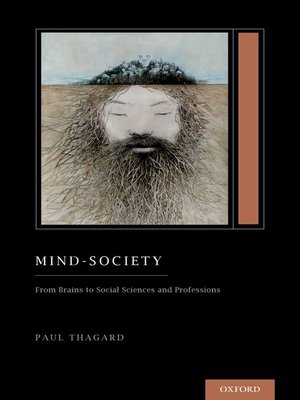Mind-Society
ebook ∣ From Brains to Social Sciences and Professions (Treatise on Mind and Society) · Oxford Series on Cognitive Models and Architectures
By Paul Thagard

Sign up to save your library
With an OverDrive account, you can save your favorite libraries for at-a-glance information about availability. Find out more about OverDrive accounts.
Find this title in Libby, the library reading app by OverDrive.



Search for a digital library with this title
Title found at these libraries:
| Library Name | Distance |
|---|---|
| Loading... |
How do minds make societies, and how do societies change? Paul Thagard systematically connects neural and psychological explanations of mind with major social sciences (social psychology, sociology, politics, economics, anthropology, and history) and professions (medicine, law, education, engineering, and business). Social change emerges from interacting social and mental mechanisms. Many economists and political scientists assume that individuals make rational choices, despite the abundance of evidence that people frequently succumb to thinking errors such as motivated inference. Much of sociology and anthropology is taken over with postmodernist assumptions that everything is constructed on the basis of social relations such as power, with no inkling that these relations are mediated by how people think about each other. Mind-Society displays the interdependence of the cognitive and social sciences by describing the interconnections among mental and social mechanisms, which interact to generate social changes ranging from marriage patterns to wars. Validation comes from detailed studies of important social changes, from norms about romantic relationships to economic practices, political institutions, religious customs, and international relations. This book belongs to a trio that includes Brain-Mind: From Neurons to Consciousness and Creativity and Natural Philosophy: From Social Brains to Knowledge, Reality, Morality, and Beauty. They can be read independently, but together they make up a Treatise on Mind and Society that provides a unified and comprehensive treatment of the cognitive sciences, social sciences, professions, and humanities.







